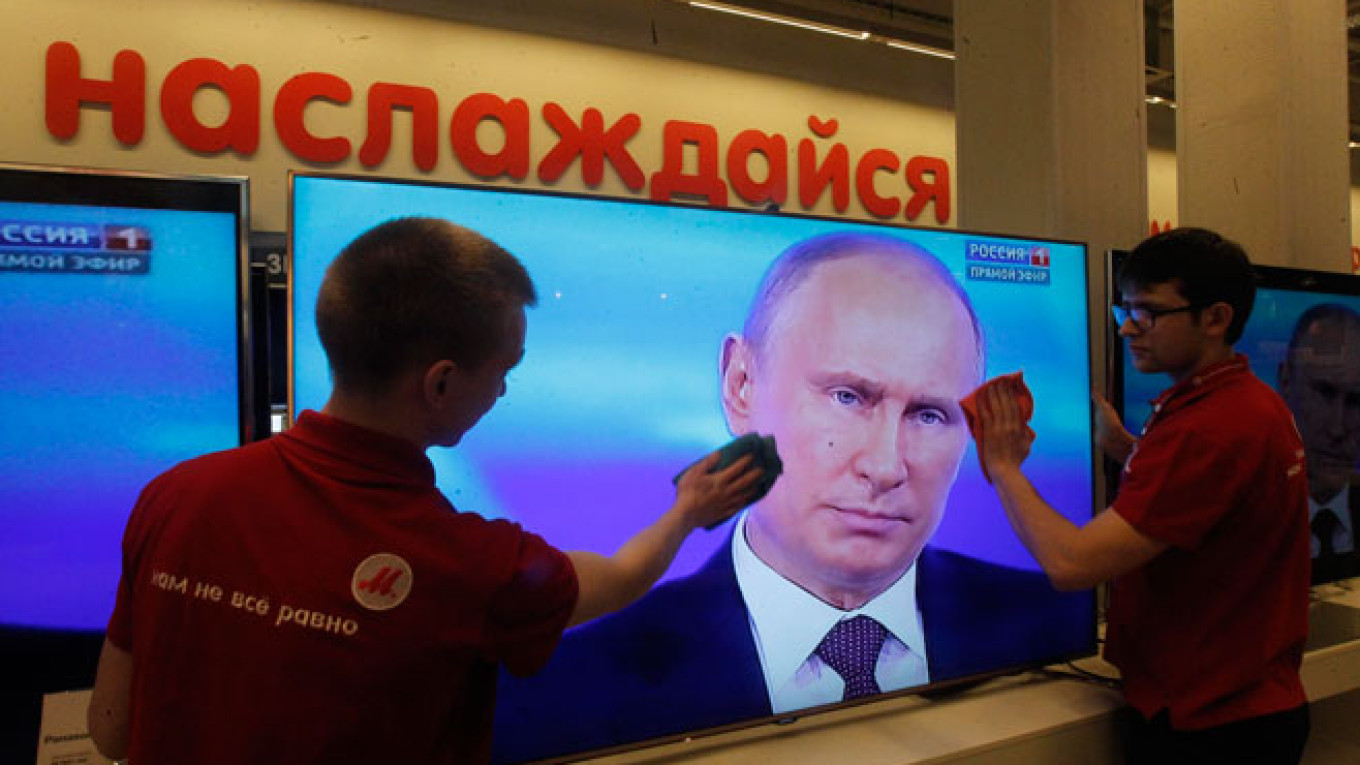When Russia's gay-bashing propagandist-in-chief Dmitry Kiselyov took over Russian news agency RIA Novosti, some compared the people who left, including myself, to "rats escaping a sinking ship." It was an unfair comparison, especially since RIA was not going anywhere.
Instead of a sinking ship, RIA is more like a zombie. As the quality and trustworthiness of the content wanes, RIA continues to go through the motions of a news agency and may do so for many years to come.
The issue is not just propaganda, but basic professionalism. I don't believe that any news organization — whether privately owned or funded by the government — can escape having a particular slant, especially as far as pet issues are concerned. But what I do believe, wholeheartedly and without a doubt, is that basic reporting standards are the same for everyone.
There is a reason why Russian bureaucrats who insist that "there is no truth" and that "everyone is biased" conveniently leave out any mention of reporting standards.
Admitting that there are still guidelines every good journalist should follow — regardless of who's paying the bill — would destroy the argument that, for example, Russian state television is simply acting as a counterbalance to global Russophobia when it airs a report in which a clearly unstable source insists that the Ukrainian army crucified a child in liberated Slavyansk. Biased or unbiased, a BBC journalist in a similar position would have pressed for the facts or risked well-deserved scorn.
So why do the Russian people buy this? Why does the majority of the Russian public still trust their television and lavish the likes of Kiselyov with huge ratings?
Although there are many reasons, including historic reasons, why the media in Russia has developed the way it has, one obvious issue that people seem to overlook is that this kind of propaganda is sexy.
The starchy Soviet days are long gone. Domestic news now deals in drama and dirty laundry. Production value is superior, the entertainment value is downright Michael Bay-like in places, there are clearly defined bad guys and good guys, and there's a ton of national pride to go around.
Smug Russian officials will say that their winning formula, combining sensationalism with a decidedly pro-government slant, is not unique — and they will be correct in this.
But the devil is, once again, in what Russian officials refuse to mention: In Western countries, the government is not in the habit of hounding or, for that matter, liquidating media outlets that instead aim to adhere to decent standards. At worst, the capriciousness of the market, combined with general public ignorance and complacency, is Western journalism's biggest enemy. This enemy can be formidable, but unlike the Russian state, you don't fear for your actual safety when confronting it.
Is the outside world unfair to Russia? Over the years I've argued that yes, it frequently is — and I stand by those words.
But aside from a few rapidly dimming bright spots, the Russian media landscape is, indeed, a wasteland. Russian state television in particular is every cliche and crude stereotype of Russia brought to life — its trademark ought to be a homophobic bear in a tank, swigging vodka and strumming a balalaika.
And at this point, Russian media executives themselves would probably welcome such comparisons. Basic standards of reporting used to be a mere annoyance for officials, but as a byproduct of the Ukraine crisis, they have been practically equated with treason. In a strange time like this, it is infinitely safer to be a tank-riding bear than a fact-checking journalist.
Natalia Antonova is an American playwright and journalist.


